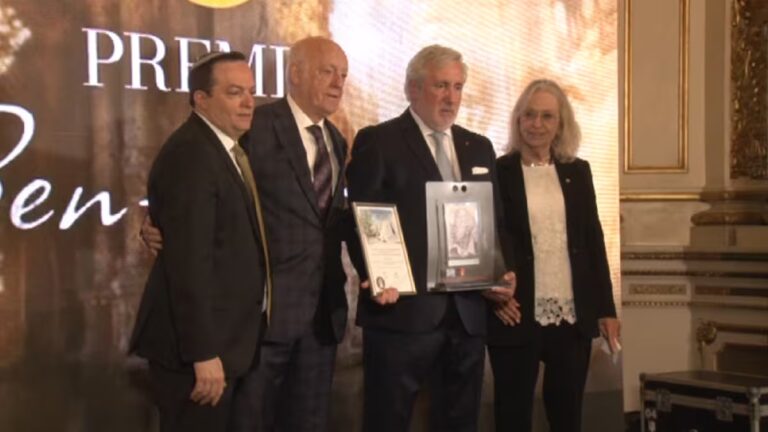
On the first day of the trial, I left the Supreme Court in the morning and met Iñaki Gabilondo on Calle Barquillo, a little dazed and thinking about my mission. Madrid is a crazy city. You are thinking about journalistic matters when suddenly Iñaki Gabilondo comes towards you with a smile on his face. Like when you know what to buy at ZARA, it’s like buying at ZARA for current political events. of course. Sometimes I wonder if the City Council has set these things up for us as outsiders. Hungry, Alberto Chicote gets out of the taxi. I told Gabilondo where I came from and what I was worried about. I spoke to him about the crisis in the system, the public’s distrust of the judiciary, the visible cracks in the pillars of democracy, and all that is wrong. I almost grabbed his arm to keep from passing out. “I’m sorry, it’s Spain’s fault.” “There are three exits,” he said. I couldn’t believe how lucky I was and shamefully pulled out my notebook. “Land, sea and air,” he said. “Well, let’s see,” I thought, making the same fuss as Rajoy had when he asked the question in English.
Maybe I underestimated the diagnosis. In fact, I didn’t say it until Thursday of this week, when the final hearing of the trial was underway, with the parties, the prosecution and defense, establishing the facts and assembling and presenting the story. Being a judge is an amazing thing. in trainspottingIn “Spud,” a heroin addict, Irving Welsh, whose book “Spud” goes on trial, his friend Begbie, a violent psychopath, attends the trial.Begbie rolls his eyes, listens to the legal reasoning, and says to the main character, Renton, “It takes a shitty brain to be a judge.” I’ll always remember that phrase. I read it in the late 90’s and it’s still there every time I see a judge. It is not because of language, but because of the final task, the most delicate one: believing. Who do you believe when there is no evidence of accusations or confessions, both versions are heard, both piece together their stories based on proven facts, and each leans to their side? Who will convince you? Were the signs of an investigation loud enough to decide whether to send these gentlemen, who basically have to trust others, to jail? Yes, that’s a judgment. That’s why we need brains.
In the morning, the prosecuting attorney will put together his story. It is a moment of eloquence and persuasion. Gabriel Rodríguez Ramos, the lawyer representing accuser González Amador, makes a gesture of praise when he does something powerful (deleting a cell phone with FGE), as if this were the clincher. Of course, there are also valley moments, which my aunt described with the hideous expression “pichi pacha.” But they’re fun because lawyers have to maintain a rhythm of accusations, raising their voices on issues that don’t deserve such a tone. It’s a word you often see in movies. his blue coat“He walked out into the street.” And everyone was looking at the blue coat, like, “What is this guy saying?” González Amador’s lawyers are excellent, or at least conscientious and persistent. It was not an easy task, but we also gained valuable points from the witnesses. Hans Kleans’ lawyer, who was the third or fourth person to speak about the accusations, now has a piece of paper in front of him. I’m interested in one lawyer. They are competing among lawyers. At McLaren, let’s see who scores the goals, who finds the cracks and who can find the keys. He looks at Calico, lavishes words on other lawyers and looks at them with such respect that his colleagues even look at him with contempt and fear.
In the afternoon, FGE’s lawyers will argue the known policy and paradoxically defend the shooting profession of two great monopoly players. Journalists Jose Precedo and Miguel Ángel Campos declared that they had physically obtained the leaked emails before the state attorney general obtained them. Several veteran investigative journalists also accessed the content. It makes me laugh a little to imagine them lying before the Supreme Court, jeopardizing their decades-long professional careers, and exposing themselves to demerit points for false testimony, which means prison time. But I’m not a judge, and I don’t have the brains to be one, so a judge can’t speculate like I’m supposed to. If FGE is convicted, shouldn’t false testimony be presumed from all of them if the court assumes they lied?
There are three exits.



